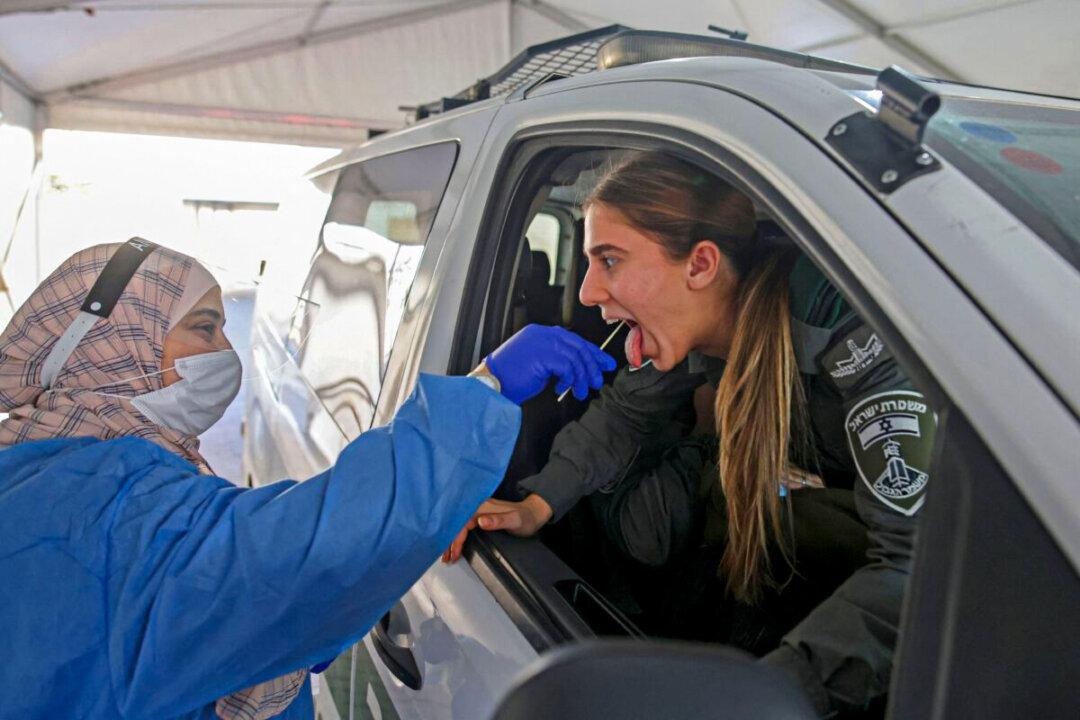The Israeli Ministry of Health announced this week that more than 72,000 people tested positive for the CCP (Chinese Communist Party) virus, the largest rise in infections since the start of the pandemic.
Total active cases in the country rose to nearly 400,000 people, of whom 533 are currently hospitalized in critical condition, according to a Jan. 19 statement posted by the country’s health ministry.





